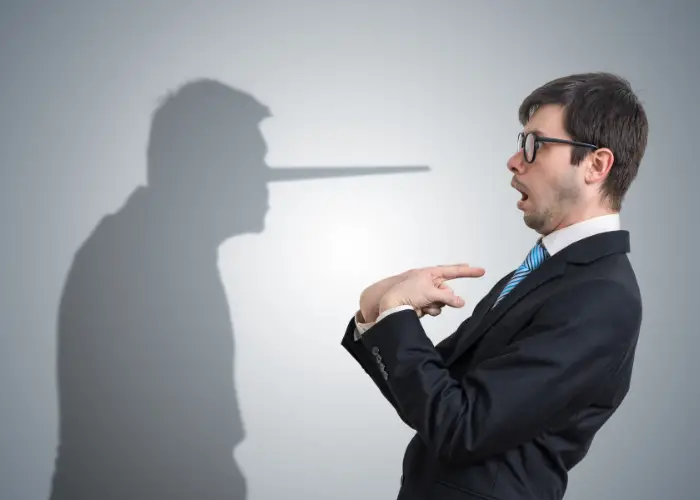Introduction: Unraveling the Fabric of Modern Slang
Language, like the people who use it, is constantly evolving. New words and phrases emerge, old ones fade, and meanings change. Among these shifting sands, slang terms stand out, offering us glimpses into the zeitgeist of an era. One such term that has captured the essence of contemporary conversations, especially among the younger generation in America, is “cap.” But what does it mean, where did it come from, and how is it used in everyday parlance? Let’s dive in.
Examples of “Cap” in Usage
- Affirming a Lie:
Jake: “I didn’t study at all for that test, and I got an A!”
Mia: “Cap! I saw you in the library all week.” - Highlighting Truth:
Ava: “I promise I didn’t touch your laptop.”
Liam: “No cap?” - Sarcastically Pointing Out Untruth:
Tweets about being at the gym daily.
Comment: “Big cap! We all know you’re binge-watching shows.” - Expressing Skepticism:
Ella: “They say this new phone battery lasts three days.”
Ryan: “Sounds like cap to me.” - In Question Form:
Dylan: “I’ve been to every single NBA game this season.”
Sophia: “Cap or no cap?”
Historical Roots: The Evolution of “Cap”
Traditionally, the word “cap” was largely synonymous with hats or coverings for the head. Its shift into the realm of American slang, however, introduced a whole new dimension to its significance.
Emerging primarily from the Southern hip-hop scene, “cap” began its linguistic evolution during the late 20th and early 21st century. In this context, the term was initially associated with “busting a cap,” a slang expression referring to firing a gun. But as with many slang terms, its meaning evolved, and by the late 2010s, it started to represent dishonesty or falsehood.
Music, particularly hip-hop and rap genres, along with the rise of social media platforms, acted as catalysts, propelling “cap” into mainstream vernacular. Platforms like TikTok, Twitter, and Instagram have played an instrumental role in spreading and solidifying the term’s popularity among younger audiences.
Decoding the Nuances: The Dynamics of “Cap” in Modern Usage
In today’s American slang, “cap” essentially equates to lying or falsehood. When someone claims another person is “capping,” they’re suggesting that the individual is lying or exaggerating. Conversely, “no cap” is used to emphasize honesty in a statement, equivalent to saying “I’m not lying.”

The allure of “cap” lies in its versatility. It can be used as both a verb (“Why are you capping?”) and a noun (“That’s a lot of cap.”). What makes it particularly striking is its widespread adoption across various segments of society. From tweets of popular celebrities to casual conversations among teenagers, “cap” has woven itself into the fabric of the contemporary American lexicon.
The word’s journey showcases the power of cultural movements, especially music and online platforms, in shaping and reshuffling linguistic expressions, dictating what’s in and what’s outdated.
Generational Adoption and the Fluidity of “Cap”
It’s worth noting how seamlessly “cap” transitioned from its roots in the hip-hop community to becoming a staple among Gen Z. Younger generations, thanks to their inherent digital nativeness, have an uncanny ability to pick up, disseminate, and even transform slang at an astonishing pace. This is evident in how “cap” has found its way into various online memes, videos, and tweets, often being used in humorous, ironic, or sarcastic contexts. The term has become more than just a word; it’s a reflection of generational attitudes towards truth, perception, and authenticity.
The Double-Edged Sword of Popularity
However, like many slang terms that gain rapid popularity, “cap” faces its own challenges. As it permeates broader pop culture, there’s a risk of the term being overused, misunderstood, or even appropriated without understanding its cultural roots and significance. This phenomenon is not new; many slang terms have faced similar trajectories in the past. But with the digital age amplifying trends at an unprecedented rate, the lifecycle of slang terms like “cap” can be both meteoric in their rise and swift in their evolution or decline.

The Future of “Cap”
Predicting the future of any slang term can be a fool’s errand. Language, especially in its informal iterations, is organic and ever-evolving. However, the journey of “cap” from a regional vernacular to a global buzzword speaks volumes about its potential longevity. As long as there’s a need to discern truth from fabrication, and as long as cultures continue to blend and influence one another, terms like “cap” will find a place in our collective lexicon. The real challenge, perhaps, is ensuring that such terms retain their authenticity and cultural significance as they navigate the complex waters of global popularity.
FAQs on “Cap” in American Slang
1. What does “cap” mean in slang?
- “Cap” typically denotes lying or falsehood. If someone says you’re “capping,” they believe you’re not telling the truth.
2. Where did the slang term “cap” originate?
- The term primarily emerged from the Southern hip-hop scene and evolved in meaning over the years. It transitioned from representing the act of firing a gun to denoting dishonesty.
3. How is “no cap” used in a sentence?
- “No cap” emphasizes sincerity. For example: “That concert was the best I’ve ever seen, no cap.”
4. Has “cap” permeated mainstream culture?
- Absolutely. The term has become prevalent in modern vernacular, especially among younger demographics, largely thanks to music and social media platforms like TikTok and Twitter.
5. Can “cap” be used in both positive and negative contexts?
- Yes. While often used to call out dishonesty, it can also be used in a playful, teasing manner among friends.
6. How does “cap” fit into the broader landscape of American slang?
- “Cap” is a testament to the fluidity of language. It underscores how cultural, musical, and technological influences continuously mold and reshape the way we communicate.







